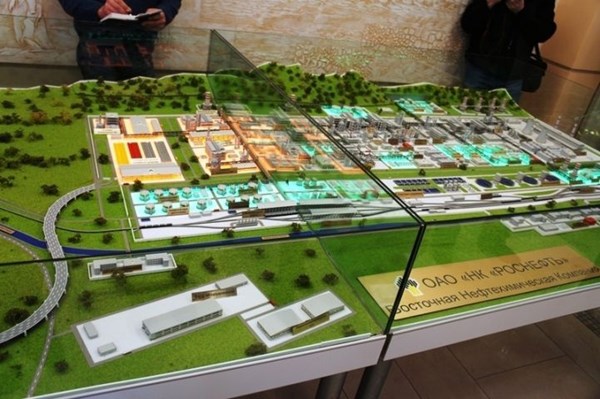Russia’s largest petrochemical project declared unprofitable
The Russian oil company Rosneft has abandoned its plans to invest in the Eastern Petrochemical Complex (EPC) in the Far East, the company’s first vice president Pavel Federov said in a conference call, finanz.ru reports.
The $12 billion project, which was meant to be built in Primorsky Krai and become Russia’s largest petrochemicals cluster, was found to be unprofitable.
The complex, which was expected to include oil refineries with a total annual capacity of 12 million tons and 3.4 million tons of petrochemical production, cannot be implemented due to the excessive tax burden, Fedorov lamented.
“The EPC was profitable under the existing tax system,” the senior manager explained. “Today, due to the implementation of a major tax maneuver (in the oil sector) it is not profitable, and as such it was removed from the company’s investment program,” he added.
The project was first planned due to a revolution in the economic and foreign policy in the East: it was supposed to be financed by the Chinese company ChemChina. A memorandum on the construction was signed in September 2015 during a visit by Russian President Vladimir Putin to China. The complex would have sold its products to Asian markets.
Construction was scheduled to begin in December 2017. Then first deputy governor of Primorsky Krai Alexander Kostenko promised thousands of new jobs, and allocated 1,300 hectares of the Partizansky District to the project. The Far East Development Corporation was prepared to allocate 3.5 billion rubles of budget funds to new infrastructure, including power lines and water facilities.
But the expectations were not realized. ChemChina refused to sign the agreement. In November last year, Rosneft invited the American company ExxonMobil to join as a partner, but this too was unsuccessful.
The problem is not only the tax maneuver, but also the hands-on regulation of the oil refinement sector by the government, Fedorov explained.
“Everyone has heard about the agreements (to freeze the fuel prices) that have now been extended by three months. We also consider it possible that these agreements will be extended until the end of the year, possibly even longer,” he noted. “In the end, Rosneft abandoned a number of other projects to upgrade the installations at oil refineries and wrote off 90 billion rubles of loss from the freezing of prices,” he added.
